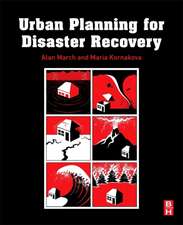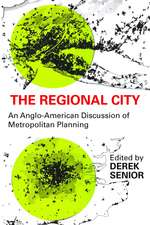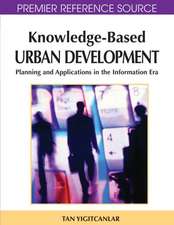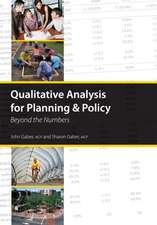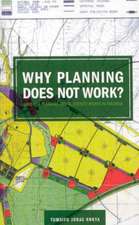The Democratic Plan: Analysis and Diagnosis
Autor Alan Marchen Limba Engleză Paperback – 11 noi 2016
| Toate formatele și edițiile | Preț | Express |
|---|---|---|
| Paperback (1) | 469.34 lei 6-8 săpt. | |
| Taylor & Francis – 11 noi 2016 | 469.34 lei 6-8 săpt. | |
| Hardback (1) | 1111.55 lei 6-8 săpt. | |
| Taylor & Francis – 21 sep 2012 | 1111.55 lei 6-8 săpt. |
Preț: 469.34 lei
Nou
Puncte Express: 704
Preț estimativ în valută:
89.81€ • 94.02$ • 74.31£
89.81€ • 94.02$ • 74.31£
Carte tipărită la comandă
Livrare economică 05-19 aprilie
Preluare comenzi: 021 569.72.76
Specificații
ISBN-13: 9781138260092
ISBN-10: 1138260096
Pagini: 202
Dimensiuni: 156 x 234 mm
Greutate: 0.45 kg
Ediția:1
Editura: Taylor & Francis
Colecția Routledge
Locul publicării:Oxford, United Kingdom
ISBN-10: 1138260096
Pagini: 202
Dimensiuni: 156 x 234 mm
Greutate: 0.45 kg
Ediția:1
Editura: Taylor & Francis
Colecția Routledge
Locul publicării:Oxford, United Kingdom
Cuprins
Contents: Preface; Part I Putting Planning in Its Democratic Place: The problem of planning-as-democracy; Recognising planning's democratic challenges; Why not democratic planning? Part II Planning in a Place: Victoria, Australia: Local repetition, metropolitan vacuum; The local knowledge that repetition makes; Inclusion - at the expense of collective concern?; Problems of steering and scale: from individuals to the centre. Part III Changing a Place: Prognosis to Prescription: Critical potential: urban planning as democracy; Appendices; References; Index.
Notă biografică
Alan March, Dr, Faculty of Architecture, Building and Planning, The University of Melbourne, Australia.
Recenzii
'Alan March is concerned about why spatial planning practice so often seems to fall short of the expectations of everyone involved in urban development. Utilising Jürgen Habermas' concepts of knowing and steering, he offers a valuable methodology for analysing the effectiveness of planning systems around the democratic world followed by three principles for a practical form of communicative planning. Clearly written, this is a book for planning practitioners, as well as planning students and academics, to understand how they might make a difference to those who seemingly always lose out from planning decisions.' Jean Hillier, RMIT University, Melbourne, Australia 'Overall it is a commendable attempt at bridging the practice-theory gap. It covers some complex themes that get to the heart of democratic governance and planning and on the whole these are dealt with clearly and effectively for all readers.' Urban Studies
Descriere
Despite ongoing technical and professional advances, urban and regional planning is often far less effective than we might hope. Conflicting approaches and variable governmental settings have undermined planning’s legitimacy and allowed its goals to be eroded and co-opted in the face of mounting challenges. Deeper organising principles for self-understanding, action and productive critique are lacking. This book takes steps toward resolving these problems by providing a clear theoretical position to practically examine urban planning systems within democratic governance settings: the basis of planning’s legitimacy and action.

